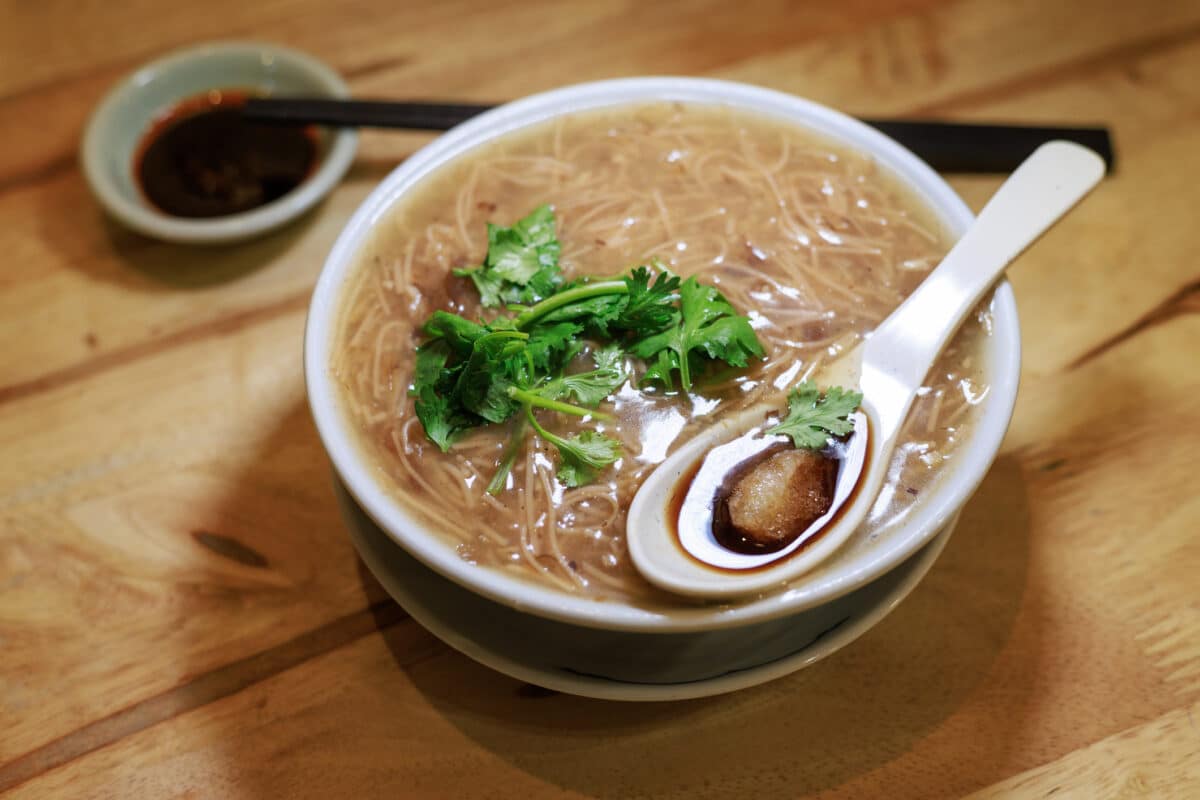Black vinegar, also known as Chinese black vinegar, is a traditional condiment in Chinese cuisine, particularly famous in the southern regions. Its unique flavor and health benefits make it a staple in various dishes. Black vinegar is created through a complex fermentation process of glutinous rice, wheat, millet, or sorghum, or a combination of these. This process can take months or even years, leading to its distinctive, rich, and complex flavor profile.
In terms of taste, black vinegar has a deep, malty, and slightly sweet flavor with a smoky undertone, differentiating it from other types of vinegar. It’s less acidic than white vinegar, with a milder and more complex taste, often compared to balsamic vinegar but with an Asian twist.
Culinary uses of black vinegar are varied. It’s frequently used in dipping sauces, particularly for dumplings and seafood. It’s also a popular ingredient in braised dishes and stir-fries, adding depth and a hint of sourness. In some regions, it’s used in noodle dishes and even as a dressing for cold salads.
Visually, black vinegar ranges from dark brown to deep black in color and has a syrup-like consistency. It’s commonly found in bottled form and is a regular feature in Asian grocery stores or the international aisle of many supermarkets.

Nutritionally, black vinegar is known for its multiple health benefits. It contains amino acids and several vitamins and may aid in digestive health. Its potential benefits include blood sugar regulation, which can be advantageous for individuals with diabetes. Black vinegar is also believed to have antioxidant properties, contributing to its reputation as a health-promoting condiment.
Interestingly, black vinegar is often used in traditional Chinese medicine. It’s thought to have detoxifying properties and is sometimes recommended for its purported ability to lower cholesterol levels and improve heart health. However, these claims, while part of traditional practices, require more scientific research for comprehensive validation.
While black vinegar is generally safe for consumption, those with specific dietary restrictions or health conditions should consult with a healthcare provider before incorporating it into their diet, particularly in large quantities. As with many fermented products, it’s best enjoyed in moderation to avoid any potential adverse effects.

